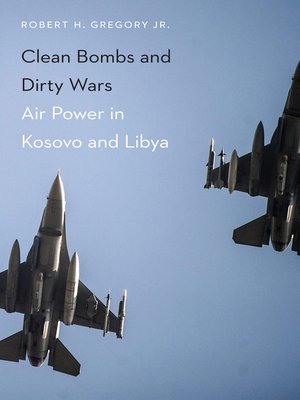
Sign up to save your library
With an OverDrive account, you can save your favorite libraries for at-a-glance information about availability. Find out more about OverDrive accounts.
Find this title in Libby, the library reading app by OverDrive.



Search for a digital library with this title
Title found at these libraries:
| Library Name | Distance |
|---|---|
| Loading... |
After the United States, along with NATO allies, bombed the Serbian forces of Slobodan Milosevic for seventy-eight days in 1999, Milosevic withdrew his army from Kosovo. With no troops on the ground, political and military leaders congratulated themselves on the success of Operation Allied Force, considered to be the first military victory won through the use of strategic air power alone. This apparent triumph motivated military and political leaders to embrace a policy of using "clean bombs" (precision munitions and air strikes)—without a dirty ground war—as the preferred choice for answering military aggression. Ten years later it inspired a similar air campaign against Muammar Gaddafi's forces in Libya as a groundswell of protests erupted into revolution.
Clean Bombs and Dirty Wars offers a fresh perspective on the role, relevance, and effectiveness of air power in contemporary warfare, including an exploration of the political motivations for its use as well as a candid examination of air-to-ground targeting processes. Using recently declassified materials from the William J. Clinton Presidential Library along with primary evidence culled from social media posted during the Arab Spring, Robert H. Gregory Jr. shows that the argument that air power eliminates the necessity for boots on the ground is an artificial and illusory claim.







